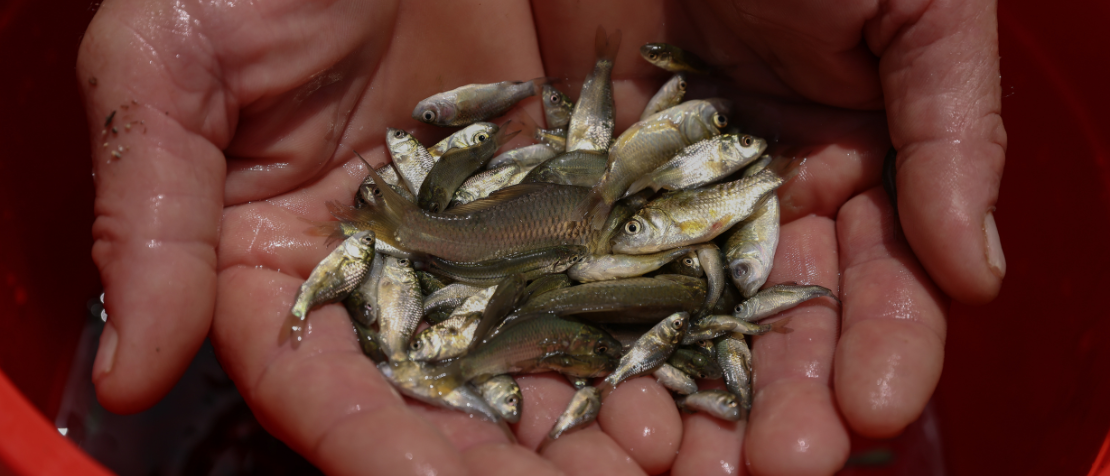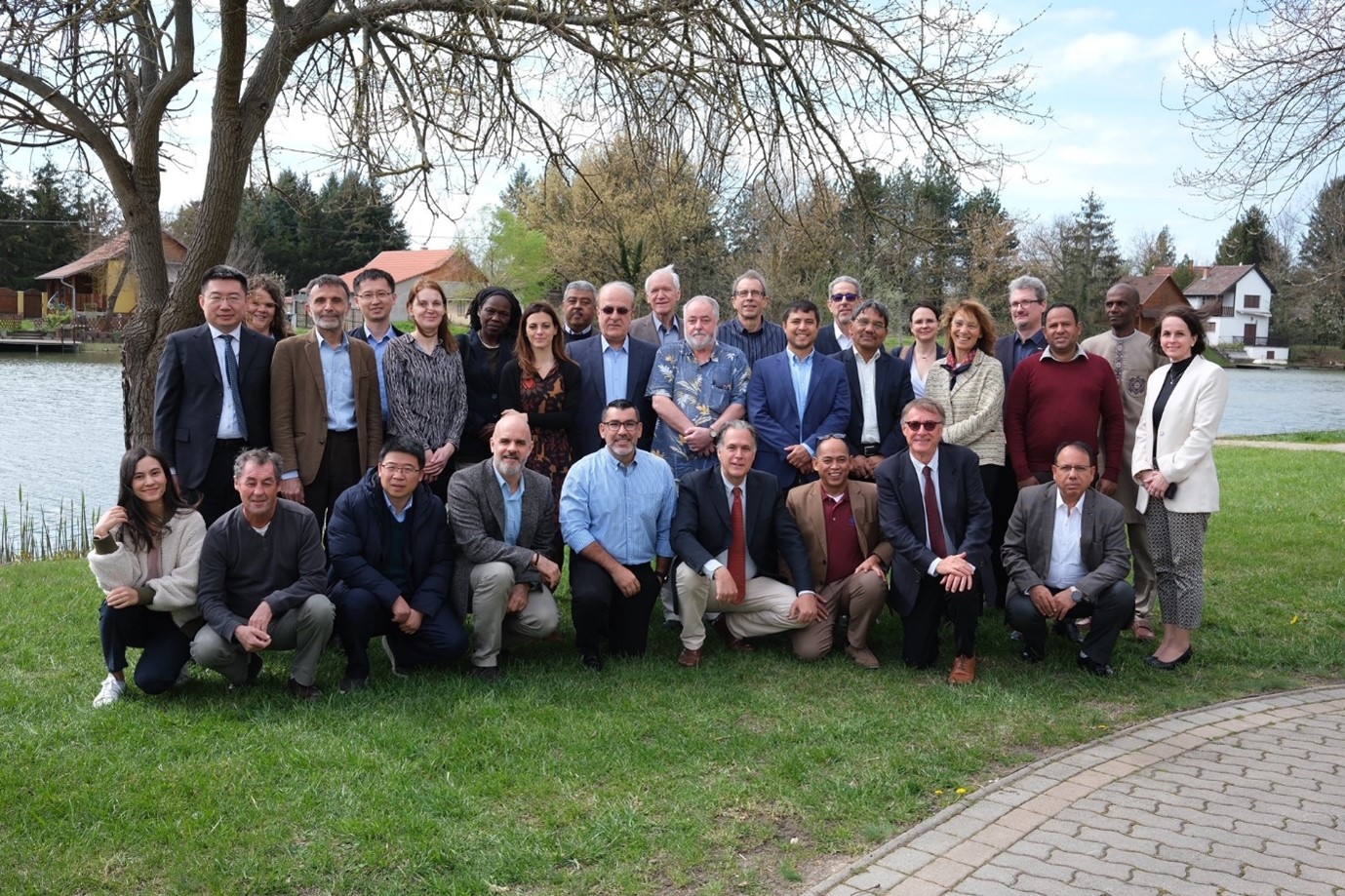Thriving, efficient small-scale aquaculture starts with a reliable fish seed supply

©FAO/Franc Zhurda
Aquaculture is the world's fastest growing food sector and over half of aquatic food is farmed. However, producing and accessing adequate quantities of good quality seed remains a challenge constraining the growth of sustainable aquaculture in many developing countries.
In aquaculture, seed encompasses the different life stages of the young species – from egg to juveniles. Therefore, improving fish farmers’ access to quality seed is key to the growth of successful small-scale aquaculture, especially in developing countries. The ways and means to meet this need was the main theme of the discussions at an expert workshop co-organized by the Food and Agriculture Organization of the United Nations (FAO) and the Research Institute for Fisheries and Aquaculture of the Hungarian University of Agriculture and Life Sciences and held in Szarvas, Hungary, 27—28 March 2024.
Workshop participants, representing 13 countries and with experts from Stirling University, Virginia Tech, and WorldFish, focused on sustainable ways to enhance seed supply chains, specifically targeting issues of the acceleration of the uptake of genetic improvement programmes, the role of broodstock certification, and hatchery design.
Among the recommendations for action from the meeting to FAO were the development of technical manuals on hatchery design and guidelines for the effective implementation of genetic improvement programmes.
Effectively domesticating and improving aquatic genetic resources can boost both the quantity and the quality of farmed finfish, molluscs, shellfish and seaweed and enhance the sustainable use of aquatic biodiversity.
However, the aquaculture sector lags far behind terrestrial farming in terms of boosting production through genetic improvement by techniques such as selective breeding. Although the methods and benefits are well understood, there is little implementation of these practices in the species critical to small-scale aquaculture.
“It is important to build technical capacity in breeding and rearing seed, in the characterization and sustainable management of genetic diversity and in the implementation of genetic breeding programmes in aquaculture,” says FAO Senior Fishery Officer, Graham Mair.
“As well, there is a need to accelerate the adoption and dissemination of improved seed for key species. These are among the strategic priorities identified by the Global Conference on Aquaculture Millennium +20, the Global Plan of Action for the Conservation, Sustainable Use and Development of Aquatic Genetic Resources for Food and Agriculture, and the FAO Guidelines for Sustainable Aquaculture,” he adds.
“It is also critical to understand the complex, interacting factors that affect the successful production and dissemination of quality seed,” according to Daniela Lucente, FAO Aquaculture Specialist in Genetic Resources. FAO is working to develop an assessment framework to assist members to understand these complex issues that Haydar Fersoy, Senior Fishery and Aquaculture Officer, emphasized as an important output and which he suggested could be tested in the Europe and Central Asia region.
Finally, designing and managing simple, effective hatcheries that can produce consistent volumes of quality seed is fundamental to ensure supply. While the technologies underlying these hatcheries are well-established, detailed designs and guidelines on how to build them are generally not available or hard to find.
FAO Aquaculture Officer Alessandro Lovatelli gave an overview of the main issues and gaps in the operation of fish hatcheries, which he says are mostly due to lack of technical capacity when designing and operating the facilities.
“Seed production for small-scale aquaculture requires two things: an adequate design to meet the planned production numbers, and the efficient uptake of standard operating procedures to secure such production,” says Lovatelli.
 Workshop participants group photo ©FAO
Workshop participants group photo ©FAO
